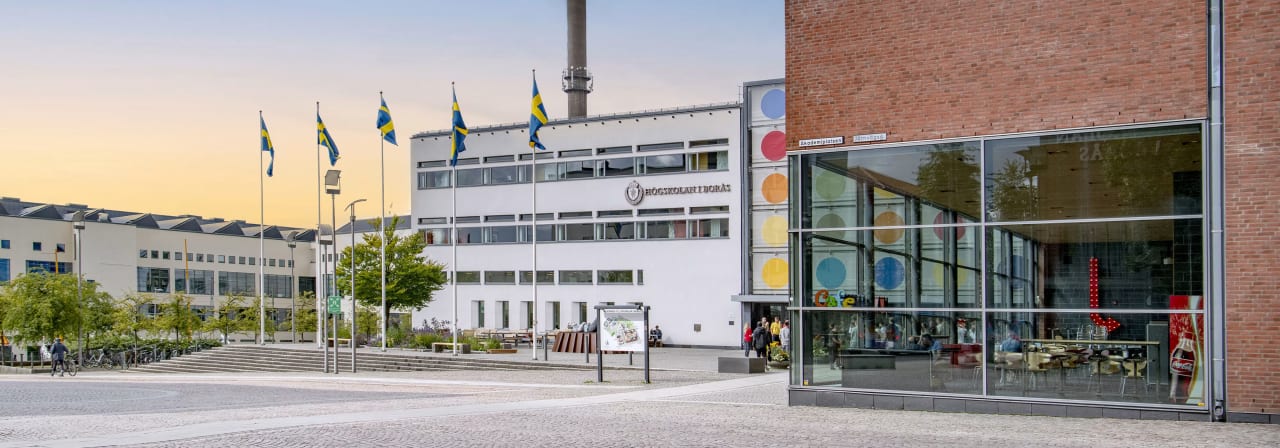
Master Programme in Textile Value Chain Management
University of Borås

Key Information
Campus location
Borås, Sweden
Languages
English
Study format
On-Campus
Duration
2 years
Pace
Full time
Tuition fees
SEK 196,000 *
Application deadline
Request info
Earliest start date
Aug 2024
* EU / EEA citizens | exchange students are not required to pay fees
Introduction
Master's Programme in Textile Value Chain Management
Do you want to learn more about effective systems for textile value chains and product flows to achieve a sustainable fashion industry? This programme provides you with relevant analytical skills and innovative tools for apparel supply chain management to deal with complex phenomena and issues caused by an unsustainable fashion system. You gain fundamental knowledge in the textile value chain processes and specialise in the management of different parts of the supply chain. A special emphasis is on sustainability, which is an important area of research at the Swedish School of
Textiles.
Our programme in short
Our programme offers a good mix of theoretical and practical courses, where scientific foundations of textile management are applied within the courses for addressing complex research and company challenges in a more profession-oriented way. Textile management is a multidisciplinary area with a foundation in social science research fields such as business administration, industrial economy, fashion studies, and related areas that addresses phenomena important for the textile and fashion industry. Within textile management, phenomena related to different parts of the textile value chain are studied. Sustainability is a common theme throughout all the courses in the programme. These include the development of alternative business models, sustainable trade, and distribution with safe and effective systems for textile value chains and product flows.
Gallery
Admission requirements
- Bachelor's degree in business administration, industrial engineering, or textile engineering.
In addition, proficiency in English equivalent to Swedish upper secondary course English 6 is required.
Program content
This two-year Master’s programme is comprised of four terms of full-time studies. The courses offered are strongly rooted in current issues in the textile and fashion industry as well as current research in textile management with a focus on sustainability and digital transformation.
During the first year, the programme provides in-depth knowledge of theory development, issues, methods, and current research in textile management. The year ends with the course “Field Study in Textile Management,” which opens up for classical internships in companies but also the possibility to be a research assistant with one of the research groups in textile management.
During the second year, the knowledge and skills obtained during the first year are deepened with focus on the management of textile value chains. In this regard, theoretical approaches introduced in the courses on the supply chain management within the first year are transferred into an applied context. Areas in focus are e.g. risk management, traceability, demand forecasts, and how the innovative management of textile value chains and product development can contribute to competitive advantage and reducing negative sustainability impacts.
The programme ends with a 30 ECTS credit degree project where the student is able to further specialise in a topic of choice related to textile value chain management.
Scholarships & funding
Scholarship options are available, please visit the university website for more information.
Tuition
- 47 000 SEK first payment.
- 188 000 SEK full tuition fee
- EU / EEA citizens and exchange students are not required to pay fees. *
Continuing studies
This programme serves to supplement an existing education with competences related to textile value chain management. The career paths thus dependent on the background of the student in terms of undergraduate study. Previous students have found employment as for example CSR manager, sustainability strategist, assistant buyer, product development assistant, quality assurance coordinator, strategic procurement manager, supply chain and production team leader, business developer, material development manager, business controller, as well as established their own business.
Program Language Requirements
The TOEFL iBT® test is accepted by 11,500 universities and higher education institutions in over 160 countries. Book your test today!
Sponsored partner